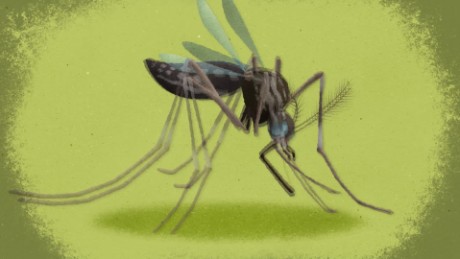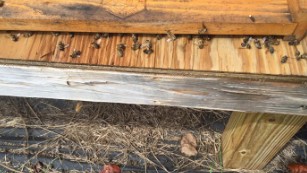Illegal and unreported fishing is a multibillion-dollar business around the globe, and one that has proven notoriously difficult to combat. In part, that’s because it involves a constant stream of renegade fishermen being pursued by countries that have only limited resources to carry out a perpetual cat-and-mouse game on the high seas.
But a new satellite-based surveillance system powered by Google, which will be publicly unveiled Thursday at a global oceans conference at the State Department, aims to help alter that equation. Global Fishing Watch, as it is called, is designed to act as an eye in the sky, constantly scouring the globe in search of those illegally plundering the oceans. The organizations that partnered to develop it, which include the marine-advocacy group Oceana and West Virginia-based nonprofit SkyTruth, say the free platform will help governments, journalists and everyday citizens monitor roughly 35,000 commercial fishing vessels nearly in real time.
“We will be able to see a lot of information about who is fishing where,” said Jacqueline Savitz, vice president for U.S. oceans at Oceana, adding that the platform will help “revolutionize the way the world views commercial fishing.”
The technology uses public broadcast data from the Automatic Identification System (AIS), which uses satellite and land-based receivers to track the movement of ships over time. Not all fishing vessels willingly broadcast their location, of course — particularly those intent on breaking the law — and vessels can switch off their trackers, potentially hindering the usefulness of the new technology. The United States and other countries already require vessels of a certain size to use the locator system, partly as a safety measure to avoid collisions at sea, and more countries are beginning to follow suit. Global Fishing Watch allows users to access that information to track specific vessels over time, going back to 2012. Savitz said she believes the tool will have an array of uses. Governments could use it to monitor and enforce fishing restrictions in their waters. Journalists and the public can use it to search for suspicious fishing activity, such as vessel that suddenly seems to disappear or one that rarely comes to port, and to make sure officials are safeguarding marine protected areas. Insurance companies can track the vessels they insure.
“We’re hoping it will be useful to a lot of different sectors,” Savitz said.
The use of satellites to patrol environmental activities both on land and at sea has grown steadily in recent years. Early last year, the Pew Charitable Trusts launched a similar technology aimed at helping authorities detect and respond to pirate fishing in the oceans. Known as Project Eyes on the Seas, it was developed alongside a British company and uses various satellite tracking data to help track suspicious vessel movements of fishing ships at sea.
“You can track anything in the world from anywhere in the world,” SkyTruth’s president, John Amos, whose work has helped reshape environmental watchdog efforts, told The Washington Post for a magazine story in 2013.
Global Fishing Watch, which has been under development for two years, has shown flickers of success. The government of the Pacific island nation of Kiribati used it to document how a tuna-fishing vessel had operated illegally inside the Phoenix Islands Protected Area, which had been declared off-limits to commercial fishing in early 2015. The episode resulted in a $1 million fine — a large sum for such a tiny government. Using satellite-based technology, Global Fishing Watch is a new system keeping tabs on fishing vessels to prevent illegal and unreported fishing. Using satellite-based technology, Global Fishing Watch is a new system keeping tabs on fishing vessels to prevent illegal and unreported fishing. (Oceana) The new technology being unveiled Thursday is one piece of a much broader international push to reduce overfishing in the oceans and cut back in particular on illegal fishing, which can deplete fish populations, harm local habitats and have serious economic consequences.
“The problem is just gigantic,” Secretary of State John F. Kerry said in an interview this week with The Post. “A third of the world’s fisheries are overfished, and the ones that aren’t overfished are at max, with more and more demand. Half the world’s population, basically, relies on protein from the ocean to survive. It’s an ecosystem that requires sustainability to survive, and we’re not treating it in a sustainable fashion.”
Earlier this year, a first-of-its-kind international treaty designed to help stop illegal fishing entered into force after being ratified by dozens of countries. The accord, known as the Port State Measures Agreement, is aimed at improving the ability to detect illegal fishing, stop illegally caught fish from reaching ports and markets and sharing information about illicit fishing vessels among nations.
Under the agreement, a country can deny ships suspected of illegal fishing entry into port or refuse to let them offload fish or refuel. Fishing vessels that want to enter a given port also must request permission ahead of time, detail what fish they have on board and verify that it was caught legally.
Zika spraying kills millions of honeybees
(CNN)The pictures are heartbreaking: Millions of honeybees lie dead after being sprayed with an insecticide targeting Zika-carrying mosquitoes.
"On Saturday, it was total energy, millions of bees foraging, pollinating, making honey for winter," beekeeper Juanita Stanley said. "Today, it stinks of death. Maggots and other insects are feeding on the honey and the baby bees who are still in the hives. It's heartbreaking."
Stanley, co-owner of Flowertown Bee Farm and Supply in Summerville, South Carolina, said she lost 46 beehives -- more than 3 million bees -- in mere minutes after the spraying began Sunday morning.
"Those that didn't die immediately were poisoned trying to drag out the dead," Stanley said. "Now, I'm going to have to destroy my hives, the honey, all my equipment. It's all contaminated."
Stanley said Summerville Fire Capt. Andrew Macke, who keeps bees as a hobby, also lost thousands of bees. She said neither of them had protected their hives because they didn't know about the aerial spraying.
"Andrew has two hives," Stanley said. "He didn't know they were going to spray. His wife called him. His bees are at their porch right by their home, and she saw dead bees everywhere."
It's a tragedy that could be repeated across the country as cases of Zika continue to rise and local mosquito control districts struggle to protect their residents and ease local fears.
The spray fell from the skies between 6:30 and 8:30 a.m. Sunday. It was the first aerial spraying in 14 years, according to Dorchester County Administrator Jason Ward, part of the county's efforts to combat Zika after four local residents were diagnosed with the virus.
"We chose Sunday morning because few people would be out and about that early on a weekend," Ward said. "To protect the bees, you don't want to spray after the sun has been up more two hours, so we scheduled it early."
The county used a product called Trumpet, which contains the pesticide naled, recommended by the Environmental Protection Agency and the Centers for Disease Control and Prevention for control of adult Aedes aegypti, the mosquito that transmits Zika.
According to the manufacturer's label (PDF), Trumpet is "highly toxic to bees exposed to direct treatment on blooming crops or weeds. To minimize hazard to bees, it is recommended that the product is not applied more than two hours after sunrise or two hours before sunset, limiting application to times when bees are least active."
"We followed that recommendation," said Ward, "which is also the policy laid out by the state, using a pesticide the state has approved for use."
Ward says the county also notified residents of the spraying by posting a notice on its website at 9 a.m. Friday, two days before the spraying. He added that it alerted beekeepers who were on the local mosquito control registry by phone or email, a common practice before truck spraying.
"That's true when they sprayed by trucks; they told me in advance, and we talked about it so I could protect my bees," Stanley said. "But nobody called me about the aerial spraying; nobody told me at all."
Stanley said she "would have been screaming and pleading on their doorstep if they had."
" 'Do it at night when bees are done foraging,' I would have told them," she added, breaking into tears. "But they sprayed at 8 a.m. Sunday, and all of my bees were out, doing their work by then."
Macke was also not informed, Ward said, because he, like many hobby beekeepers, is not on the local mosquito control registry.
"We are obviously saddened by the fact people have lost their hives, and we have gone back and looked at our procedures," Ward said. "We will now give up to five days of advance notice, and we have expanded our list to include more local beekeepers."
Stanley says she doesn't think there was malice involved, but that doesn't make the loss of her "honey girls" any less painful.
"This wasn't about the honey," she said. "It was about raising bees and selling them to other people, and spreading the honey girls out there into the world. Now, I can't help anyone anymore, because all of them are dead."
http://www.cnn.com/2016/09/01/health/zika-spraying-honeybees/




No comments:
Post a Comment